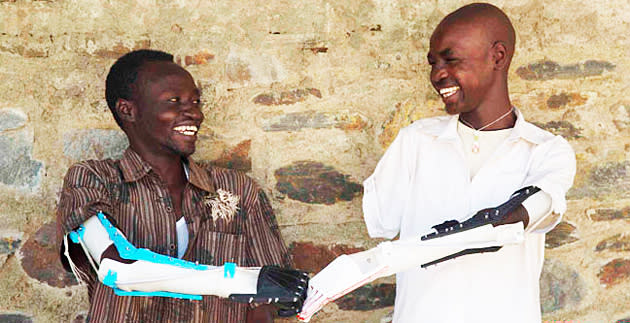Inhabitat's Week in Green: Navia, $100 prosthetic limbs and a controlled nuclear meltdown

Each week our friends at Inhabitat recap the week's most interesting green developments and clean tech news for us -- it's the Week in Green.

As most of the US bundled up and tried to stay warm during last week's unprecedented "polar vortex," the tech world descended on Las Vegas for the annual International CES. Intel started things off by vowing to use only conflict-free minerals in its microprocessors, and Ford officially unveiled its very first solar-powered car. Manufacturers also showcased several gadgets focused on personal improvement -- check out this smart bed that helps control snoring and the Lumo Lift, a gizmo that gently nags you to stand up straight. Also at CES, MPOWERD launched a colorful new inflatable solar lantern that will retail for just $25. In other green lighting news, Hulger introduced the Plumen 002, an innovative CFL that the company hopes will bring "magic and poetry back to the humble light bulb." Technology isn't just getting greener -- it's also changing lives. Case in point: Mick Ebeling, CEO and founder of Not Impossible Labs, recently traveled to Sudan to produce $100 3D-printed prosthetic limbs for amputees in war-torn Sudan. Apple has given its top-of-the-line workstation, the Mac Pro, a makeover that uses 74 percent less aluminum and steel than the previous generation. For backyard gardeners, Togetherfarm has produced a modular garden box system that snaps together like Lego bricks. And in other Lego news, Lego announced that a new Simpsons set would be produced this year.
American politicians have had a tough time getting high-speed rail projects off the ground, but the US could get a helping hand from Japan. Last week, the Japanese government offered to loan the US half of the $8 billion required to create a Super-Maglev route between Washington DC and Baltimore. In other green transportation news, Navia, the world's first commercial driverless electric car hit the streets in Switzerland. With top speeds of 12.5MPH, the car won't be breaking any speed records, but it produces zero emissions and is 100 percent autonomous. And for DIYers, OSVehicle has produced TABBY, an open-source electric car that can be assembled in less than an hour. While many cities are widening highways and trying to figure out how to accommodate more cars, the German city of Hamburg is doing just the opposite. Hamburg just unveiled a plan to phase out the need for cars within the next 20 years. A Palo Alto-based company has given the skateboard an electric upgrade with Onewheel, a self-balancing electric board that's powered by a lithium-ion battery. Future Motion, the company behind the revolutionary skateboard, is currently raising funds on Kickstarter.
Last year was a great one for renewable energy in California: The Golden State doubled its solar capacity in 2013, adding a whopping 1,000 megawatts of solar capacity to the state's homes. And last month, the UK broke a series of wind energy records by generating a total of 2,841,080 megawatt hours -- about 10 percent of the country's total power demand. In other energy news, a combination farm and solar park will set up shop in Japan's Fukushima prefecture, raising questions about how safe it is to raise crops in radiation-contaminated soil. And in the ongoing Fukushima saga, scientists from the Japan Atomic Energy Agency announced plans to conduct a controlled nuclear meltdown in order to learn how to prevent another Fukushima-scale disaster from occurring.
